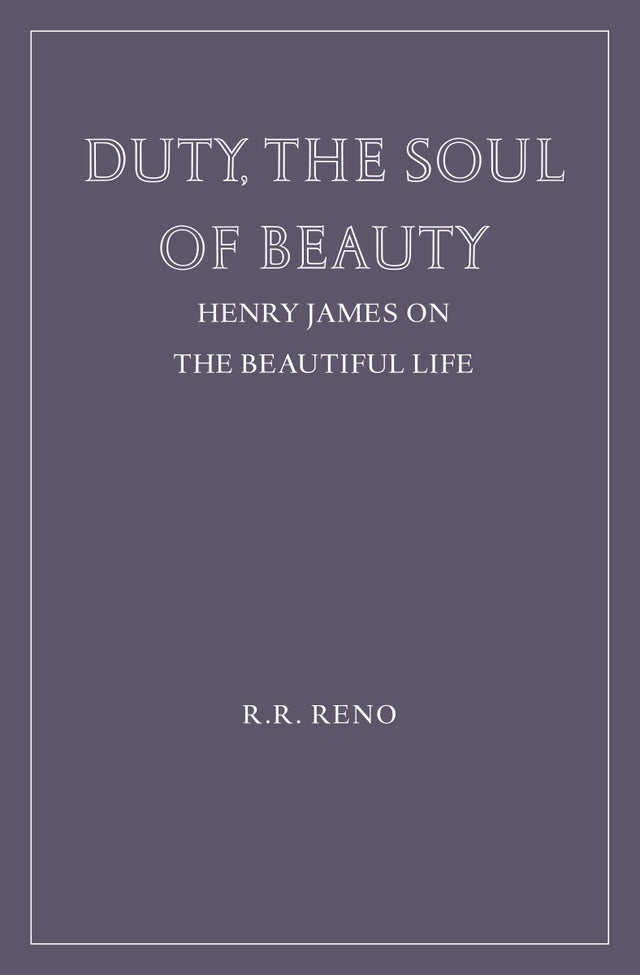- Our Books
- >
- Monographs
- >
- Duty, the Soul of Beauty: Henry James on the Beautiful Life, by R.R. Reno
Duty, the Soul of Beauty: Henry James on the Beautiful Life, by R.R. Reno
Though the late style of Henry James can be disorienting, it succeeds in rendering psychological reality, which is so often maddeningly and persistently indefinite. Nonetheless, as R.R. Reno demonstrates in this essay, James’ brilliance becomes especially evident when we consider the moral awakening of the main characters in The Ambassadors and The Golden Bowl. Faced with moral truths, Lambert Strether and Maggie Verver shudder. It is an altogether believable response. Who doesn’t lose his footing when hit with the full force of truths that cut to the root of our humanity? The Israelites cowered at the base of Mount Sinai: “Let not God speak to us, lest we die” (Exodus 20:19). The Sermon on the Mount knocks readers off balance. “If your right eye causes you to sin,” Jesus teaches, “then pluck it out” (Matthew 5:29). And Strether and Maggie do not just regain their feet and grimly allow moral facts to define their lives. The endlessly adumbrated, suggestive atmosphere of The Ambassadors and The Golden Bowl conjures a very different image. A commitment to what is right and rejection of what is wrong galvanizes their personalities and sharpens the edges of their characters. More solid, more self-possessed—more beautiful—Strether and Maggie are transfigured by the authority of moral truth. This transfiguration cannot be summed up in moral commendations, as if Maggie’s accomplishment was to be a “good girl” or “on the right side.” James wants us to see a consciousness aroused to become something great and admirable by what we too often think a small, mean thing—duty. To have succeeded, to have done this in prose is a magnificent achievement.
R. R. Reno has written a compelling, brilliant, and persuasive essay on the novels of Henry James’ late phase. Through his penetrating reading of two of these novels--The Ambassadors and The Golden Bowl--Mr. Reno enlarges our understanding of how Henry James was able to bring beauty to his characters and moral grandeur to the act of resignation. We are in his debt.
—Joseph Epstein, author of Charm: The Elusive Enchantment


